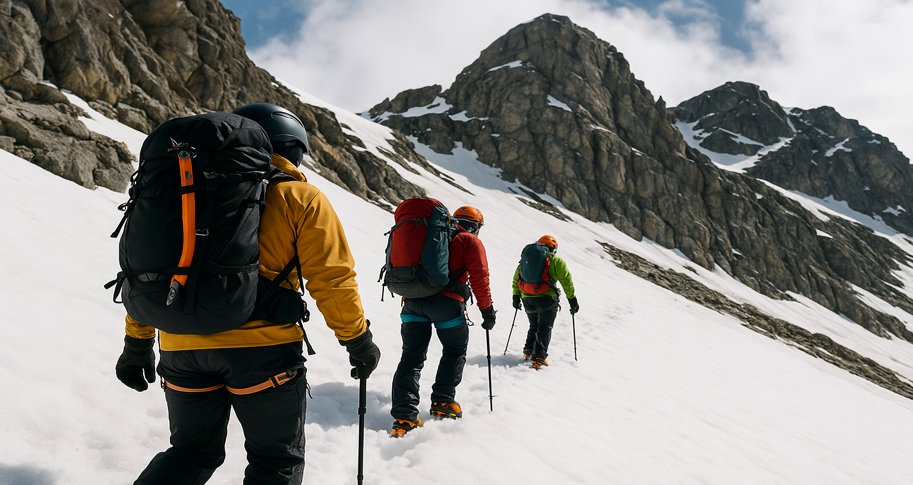
Who is this research for? Adventure tourism operators, outdoor gear companies, marketers in health and wellness, and consumer behavior researchers interested in risk-taking and identity formation.
Executive Summary
This study, co-authored by Steven W. Kopp of the Sam M. Walton College of Business, University of Arkansas (Department of Marketing),
explores why consumers pursue mountaineering despite extreme risks.
Using ethnographic methods, interviews, and netnography, the researchers analyze climbers’
experiences through the lens of Terror Management Theory (TMT) — which posits that
mortality awareness shapes behavior and identity. The work suggests mountaineering
is less about adrenaline or thrill-seeking and more about symbolic meaning, preparation,
and long-term identity transformation.
Key findings highlight that climbers derive satisfaction not primarily from reaching
the summit, but from:
- Preparation (months of training, discipline, and gear mastery).
- Risk mitigation (pride in managing danger skillfully).
- Community and cultural alignment (adopting shared norms, values, and practices).
- Identity redefinition (seeing success as survival and alignment with values, not just the peak).
The research shows that mountaineering consumption reflects a search for symbolic immortality: individuals construct meaning, reaffirm self-worth, and negotiate identity in the face of constant mortality salience.
Action Items for Industry
- Reframe offerings around preparation: Adventure tourism and wellness providers can position preparation (training, education, equipment) as an integral part of the consumer journey.
- Highlight mastery, not just thrill: Marketing should emphasize skill-building, control, and resilience rather than purely adrenaline-driven narratives.
- Build community and shared rituals: Facilitate online and offline communities where consumers exchange tips, track progress, and celebrate symbolic achievements.
- Respect personalization and values: Acknowledge that consumers may define success differently (safety, growth, or legacy), not only by “finishing” a challenge.
- Extend lessons beyond tourism: Firms in health, finance, and sustainability can frame preparation and risk mitigation as meaningful identity practices that empower consumers in uncertain environments.
Quote from the Researcher
“The central insight for managers who offer these kinds of complex experiences is that there are two paths to satisfaction. Of course, mountain climbers enjoy the specific outcome of reaching the summit. Additionally, however, and more importantly, these consumers derive deep satisfaction and identity reinforcement not primarily from the accomplishment, the fleeting thrills, or specific outcomes, but from the disciplined preparation, value-aligned actions regardless of the immediate situations, and learned mastery over risk.”
– Steven W. Kopp
Co-Authors & Affiliations
- Kenneth Bates — University of San Diego, Knauss School of Business.
- Justine Rapp Farrell — University of San Diego, Knauss School of Business.
- Christopher L. Newman — University of Mississippi, School of Business Administration
Link to the Original Research
Published in Psychology & Marketing, available here.
📩 Interested in learning more?
If you’d like additional information about this research or to connect directly with
the researchers, please email us at research@walton.uark.edu.





